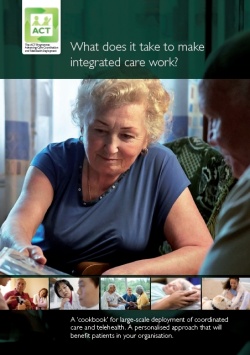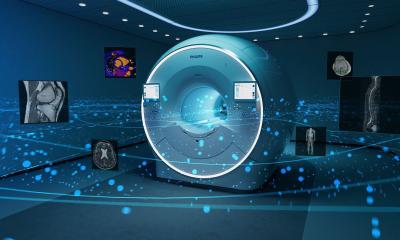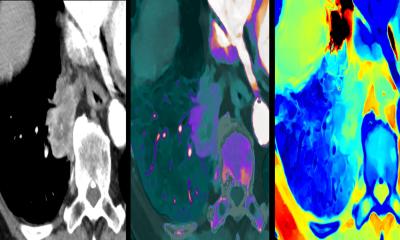Integration
Cookbook for large scale coordinated care
Royal Philips and its ACT-program consortium partners today announced the debut of a ‘cookbook’ outlining key enablers necessary to scale connected care and telehealth programs. The cookbook is the result from a two-and-a-half year scientific evaluation of data from different connected health programs in five European regions. It provides new insights that apply across the EU on why certain telehealth programs are more successful than others.

Connected care is seen by many governments as essential to enable more efficient, patient-centric and continuous care for the aging EU population; however, although many local connected care pilot programs are successful, they fail to scale and their potential impact is not fully leveraged.
The consortium researched data from patients with COPD, diabetes and heart failure in programs in the Basque Country (Spain), Catalonia (Spain), Scotland (UK), North of the Netherlands, and Lombardy (Italy) and conducted 2,500 surveys and group interviews with participating patients and care providers.
The consortium found that the scalability of care coordination and telehealth is possible, but requires significant organizational change to successfully execute the process. It also unveiled critical areas in which progress is required in order to enable the transformation to more sustainable healthcare systems.
The Cookbook advises that patients are assigned a single point of contact when enrolled in care coordination programs with several institutions and care providers to prevent them from feeling lost and diverging advices. Staff engagement is critical as in programs where staff understanding and engagement levels were high patient adherence was better compared to programs with lower engagement scores. Preventative care programs outperform reactive healthcare delivery. Improved standardization and interoperability within the European Union would enable benchmarking and leveraging successful programs beyond local pilots.
“Smarter use of digital innovation is crucial in order to enable active ageing and healthy living,” said Andrus Ansip, Vice President, Digital Single Market, European Commission. “The Advancing Care Coordination and Telehealth Deployment (ACT)-program illustrates that care coordination and telehealth can address care needs and support long-term sustainability of health and social care delivery.”
“Successful coordinated care and telehealth are principally about organizational change,” said Professor Stanton Newman of Health Psychology, School of Health Sciences, City University London, UK. “To achieve the best outcomes for patients, we need to review the way these organizations are structured and make sure everyone is aligned on the objectives and goals of integrating care coordination and telehealth into patient care pathways.”
“Connected care is critical to the future of our healthcare systems,” said Jeroen Tas, Chief Executive Officer, Healthcare Informatics Solutions and Services, Philips. “The ACT research shows that successful connected care services may start with having the right technology, but it is truly about the holistic approach of technology, processes and people to make an effective transformation.”
19.11.2015





